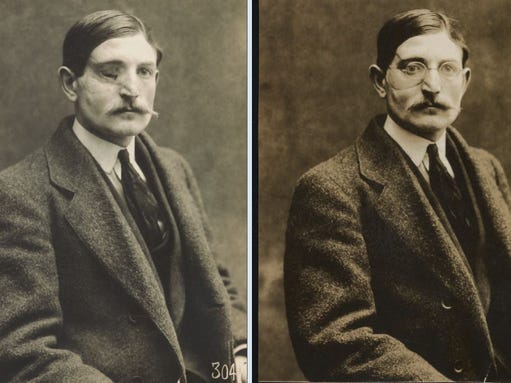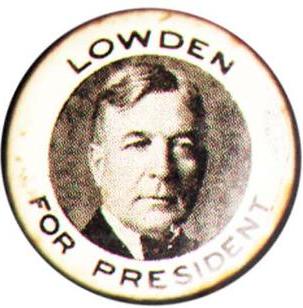Part 1: The rise of Knox - 1920
Ivory Republic: The world which Knox begat
America was an isolationist nation, or at least it fooled itself that it was. Yes, it engaged in a good few offensive wars in the 1800's against her neighbors and the native tribes within America's claimed territories. Yes, it engaged in the Spanish-American war in 1898 which had a casus belli which is considered dubious at best in the modern age. America had engaged in a sort of European Imperialism in that war, seizing several Guam Puerto Rico and the Philippines for America. However America was at least in ideals, an isolationist nation. That's what she believed.
It was for that reason, that the First World War was such a shock for Americans. Not how it began or how it was fought or how it changed the world, but how America was dragged into the messy affair kicking and screaming. America tried her damnedest to avoid the conflict.
President Wilson was elected resoundingly in 1912 after a split in the Republican party that was engendered by a major quarrel that broke out between Taft and Roosevelt. The situation between 1912 and 1916 changed substantially to say the least. In 1915 German submarines sunk the British Liner, RMS Lusitania, over 100 American nationals died in the attack and while Wilson said "America was too proud to fight" he was forced to put it frankly to the Germans: Further unrestricted submarine warfare would not be tolerated. The Germans being Germans, they did not take kindly to the concept of moderation in military affairs and the reprieve the Germans granted was short lived.
The 1916 election was a different beast. The Republicans had reunited and nominated the former Supreme Court Justice Charles E. Hughes who hadn't spoken on political issues since his joining the court and therefore was acceptable to both branches of the party. Wilson didn't take any chances and played the cards he was given to the best of his abilities. He kept the German-Americans, the Irish-Americans, and the isolationists quite firmly in his pocket by playing up his keeping of America out of the war with slogans like "America First." Hughes tried to hit back by stating Wilson was not taking necessary preparations in case of war and this only served to swing the vote further and further in Wilson's direction. Wilson would win the 1916 election - albeit very close with only 277 electoral votes for Wilson.
The short reprieve the Germans so graciously gave the world was revoked in January 1917 with the resumption of unrestricted submarine warfare. The Germans believed that this would in time lead to war with America one way or another, so they took a particularly dangerous risk in a peculiar gambit. The German Foreign Minister sent the Mexicans a telegram offering financial compensation and swaths of American territory if it joined the Central Powers and declared war on the United States. The British intercepted said telegram and would then presented the telegram to the American government. Wilson called for war in reaction and he Congress gave it to him.
The rest is for history books and for our boys missing limbs and faces to remember.

A victim of war
President Wilson's policy shifted considerably after America's joining of the war. Wilson had previously been known as a strong supporter of isolationism but Wilson grew to strongly believe that the World War was to be one of, if not the final war. He wanted to establish an international order which would arbitrate on affairs to promote peace and minimize war. This order Wilson helped conceive and create was titled the "League of Nations."
The League of Nations and the new Wilsonian Internationalism was not entirely unpopular and was certainly not entirely rejected. Wilson was opposed in the government, not just the Irish and Germans who had come to view Wilson with a great deal of disdain. By the end of President Wilson's term the US (and the world) was hit with a sharp deflationary recession, leaving a dark mark on Wilson's already sinking reputation.
Wilson suffered a stroke in October 1919 and was effectively incapacitated for the rest of his life.
When the election season inevitably rolled around in 1920, Wilson was apparently still under the impression that he could go for another election. At the Democratic Convention in San Francisco President Wilson blocked the nomination of his own son-in-law William Gibbs McAdoo in a desperate attempt to cause a deadlocked convention and lead to his winning the nomination. James M. Cox, McAdoo, and A. Mitchell Palmer fought strongly with one another for a total of 44 ballots before Ohio Governor James M. Cox won out. The Democrats would then go onto select Franklin Delano Roosevelt (relative of former President Teddy Roosevelt) as Governor Cox's running mate and putting forth a Pro-League of Nations platform.
President Wilson breathed his last breath in the political arena as soon as the convention was over. No one needed to listen to an secluded and politically ruined President. A President with no power is no President after all.
The Republicans were on a totally different wavelength at that point. They were still healing party wounds from back in 1912 and with the death of Teddy Roosevelt in 1919 the party more or less mended. Obviously there was to be pushing and pulling but there was no thought of a split in the party. A solid number of individuals threw their hat in the ring, but the party was to focus on three individuals in particular. The Liberals of the Republicans focused on US Army Leonard Wood, the Conservatives on Frank Lowden, and the solid Progressives had Hiram Johnson's back in the affair.
The ballots came back inconclusive until the 5th ballot when Leonard Wood and Hiram Johnson lost considerable ground and the Frank Lowden gained ground. Things became even more clear for Johnson once he closely considered the results. Warren G. Harding, a man whom Johnson loathed, was gaining quite steadily and could end up as a compromise candidate before long. This possible reality dawned on Johnson fully when he saw the known Harding associate Harry M. Daughtery "prancing" around Chicago as Johnson would later put it. *
"I saw Daughtery prancing around and seducing anything that moved. Something was going awry and Daughtery and Harding were a part of it."
With the fear of Harding winning the nomination as a compromise in the back of his head, Johnson released his delegates and directed them to personal friend and leaning Conservative Philander Knox. Knox was a lawyer who took part in the organizing of U.S. Steel but also served as Attorney General, Senator on multiple occasions, and Secretary of State. During Knox's tenure as Secretary of State he advocated for dollar diplomacy and would later remark that that the Versailles Treaty would inevitably lead towards war which put him as a slight interventionist. Knox could moderate himself in regards to his foreign policy and place emphasis on returning to pre-war America if need be. To accentuate this later on, the GOP would adopt an anti-League of Nations plank in their platform.

Philander Knox
In reaction to the sudden shift on the 6th ballot, the Harding movement lost steam. Due to backroom dealings and a genuine interest in Knox, Philander Knox was accepted as Republican nominee. The pick for his running mate was a far less exciting event however. A brief draft movement for Harding was smothered by political bosses who didn't want to risk a Progressive third party run and the bosses put the mostly inoffensive Henry J. Allen of Kansas forward. The Conservatives were not all too thrilled by the choice but they would ultimately much prefer Knox and Allen than handing the election to the Democrats who were firmly Pro-League of Nations.
The major tickets were as follows:
Republican: Philander Knox/Henry J. Allen
Democrat: Frank M. Cox/Franklin D. Roosevelt
Socialist: Eugene V. Debs/Seymour Stedman
Following the conventions, a great deal of jockeying on the issue regarding the League of Nations occurred. While it was true that both the Republican and Democratic platforms were very direct on the issue, both candidates has some political butt to kiss. Knox took every opportunity to remind Republican compatriots that he opposed the League and in particular the controversial article 10 which would have the US join the League in any war a member nation got themselves wrapped up in. Cox looked to be ordained by President Wilson and made sure to speak highly of the League but quickly changed his tune when he saw that most of the Democrats were in opposition to the League, from then on out Cox was for the League but was in opposition certain elements - article 10 being the focus once again.
The greatest irony of the whole affair was that the electorate really didn't care either which way about the thing. The average fellow in America (and people all around the world really) just wants a decent job to work and food on the table. Anything more than that is just a nice gift to have for most people. Political contests like the ones the regarding the League were simply not something any working stiff gave much of a hoot about. In fact in the 1920 Presidential elections, it would be unfair to say the electorate gave much care regarding the current issues either which way. It came down largely to advertising budgets and the German/Irish outrage at Wilson. Knox's campaign outspent Cox's campaign five times over and focused on making Knox look good and promoting his "America First" campaign which promoted minimal focus in foreign affairs and a strong focus in domestic affairs.

Philander Knox's victory was a landslide. Perhaps understandably so. Knox outspent Cox a great deal, Cox lost support from the German-American and Irish-American Democrats who had a serious part in propelling the Democrats up north. Wilson couldn't surrogate because of his worsening illness. Nothing positive went for Cox. In the end, the Democrats were reduced back to their stronghold in the former CSA and even that was shaky. Both Tennessee and Kentucky were won with less than a percent. If a few thousand votes went a different direction Cox could have lost Kentucky and Tennessee, turning a disappointing defeat into a pathetic failure. Cox's political career was killed by the loss and he retired officially from politics in his concession speech.
Knox had the following appointments to his cabinet:
Secretary of State: Henry L. Stimson
Secretary of Treasury: Charles G. Dawes
Secretary of War: Hubert Work
Attorney General: Henry W. Anderson
Postmaster General: Miles Poindexter
Secretary of the Navy: Edwin Denby
Secretary of the Interior: Albert B. Fall
Secretary of Agriculture: Joseph Gurney Cannon
Secretary of Commerce: Frank B. Brandegee
Secretary of Labor: Joseph M. McCormick
---
*POD: Hiram Johnson considers the Harding movement more seriously and assesses it as a threat. He also takes evasive methods to avoid a Harding nomination, leading to Philander Knox's ascent.
Last edited:










